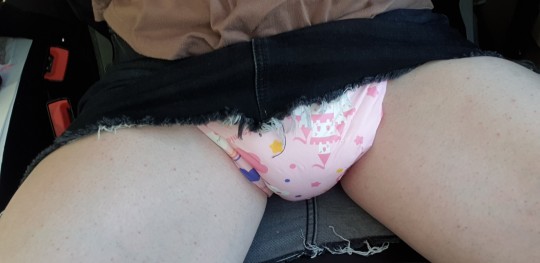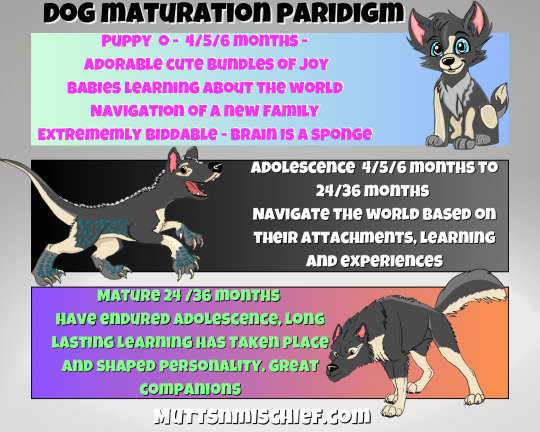#dogplay
Text

#1246 - "Blow My Spidey"
159 notes
·
View notes
Text
15 notes
·
View notes
Text

Auf dem Weg zum csd salzburg
On the way to csd salzburg
16 notes
·
View notes
Text
New content?
4 notes
·
View notes
Text
I don't feel I am the right person for a (my) dog!
Audio - text to speech - 10 minutes 3 seconds duration - https://youtu.be/CVGtybWUv5c?si=t8Vb82o6hkw8o_1Z
Many people who are autistic/ anxious or have developmental, neurological or mental health conditions (Neurodivergent) don't feel that they are the right type of person to have a dog.
I was one of these people for many years, I worried I would make my dog anxious or stressed if I was to get a dog.
Working in kennels I wanted to take them all home and couldn't see just how much I was doing for them and how much they enjoyed my company.
Being referred to as quirky, highly strung, odd, sensitive, where my heart on my sleeve, weird etc or overlooked for my skills and talent because I am different. These are all extremely harmful and hurtful terms, especially when you are also overlooked because of someone's mindset about you.
People would be quick to commend me and tell me what a wonderful way I had about myself with dogs to put the most anxious dogs at ease. But when it comes to the crunch, it is always a case of being overlooked. Which is not ideal for anyone's confidence or harmful self beliefs because of others and their opinions and lack of empathy, tolerance and understanding.
I want to remind those like myself who are also neurodivergent or disabled that there is absolutely nothing wrong with us having dogs.
Some studies have found long term stress for humans can affect dogs also (but what they mostly found was this was actually with guardians who took their dogs to agility). (1)
Studies are extremely limited and work with a controlled section of breeds, sex, humans and environmental factors. For example in the study conducted by Sundman et al (2019). Their study was limited to 58 humans and their dog which was either a Border Collie or Shetland Sheepdogs.
If we look at another journal we find that there has been a study focused on Border collie behaviour. “Individual and group level trajectories of behavioural development in Border Collies.” This study focused on 69 Border Collies which placed an emphasis on the individual traits of each dog. (2)
So it is very easy for a journal to say that science has found evidence that stressed owners stress their dogs. However this is a very small study and not one to a scale where this could be said definitively or one that could be applied to real relationships as the individual guardian and their family would have to be evaluated by a psychiatrist, an independent observer such as a behaviourist would have to fill in the questionnaires about the dogs perceived behaviour in the home etc and then the researchers would have to interpret this data.
Which will never happen as this would just be too costly and many guardians would not want a live in behaviourist observing them nor would many people be open to a psychiatrist test to explore the five factor model and be assessed on their OCEAN traits of personality. (3)
OCEAN stands for openness, conscientiousness, extraversion, agreeableness and neuroticism. For my Level 4 years ago I had to conduct this study on a cross section of willing friends who were also dog guardians. Some of them are neurodivergent and some not yet all scored very high for neuroticism. Which according to data doesn't make for a great guardian, except they were great guardians.
We can absolutely not base a person's ability to be a good guardian based on their developmental, neurological conditions or mental health.
All of my dogs support me and my mental health, they know when I am struggling and they offer comfort during these times. I am stressed most of the time and my dogs are not. If I have a particularly bad day this does not reflect in their behaviours, they aren't highly strung on walks, their fur patterns haven't changed, their diets and appetites haven't ever changed, playfulness or any other behaviour trait.
Zombie, my youngest is a special needs dog and his behaviour is the opposite of what a dog should express, for example when he's enjoying cuddles that he instigates, he doesn't look soft and relaxed like a normal dog. He looks the complete opposite and if you stop because you're worried about his body language he communicates to you that you fuss him and he isn't finished.
Many people said that I should euthanize him when he was younger and showed how different he was, but I persevered and made sure he was happy and comfortable just like my other dogs with different needs and arrangements made for him.
Now I am commended for all I have done for him and how he is excelling and enjoying life.
The relationship with your dog isn't about training and how your dog feels emotionally. It's about the connection you both have. Again if we look at the first study the dogs and humans both showed heightened stress partaking in dog sports.
The pet dogs did not show this level of stress and nor did their humans. The researchers themselves admitted this needs to be studied further for a complete understanding.
The most important thing is the connection you have with your dog. It doesn't matter if you're stressed, depressed, autistic or have another development or neurological condition or if you have a mental health condition.
The connection you have with your dog and how you live with them, bond with them, play with them, communicate with them and love them is what matters. A dog and guardian relationship where the dog and the guardian share a secure connection is what matters.
What many of us need to focus on whether you already have a dog or are considering adding to your family is self love which you can read about here and access self help tools. https://www.facebook.com/share/Aup95JhKk7BT4zCT/?mibextid=WC7FNe
Dogs also do help people with mental health problems, developmental and neurological disorders. Studies that have found that guardians struggle with mental health are actually based on the reactivity of the human.
Researchers found guardians of dogs may experience a form of caregiver burden as found in humans and families due to dogs being seen as a part of the family unit. (4)
This reference is cited from a journal which was exploring how mental health is impacted by dogs. This particular reference was in reference to guardians with reactive dogs.
These guardians displayed negative mental health due to their dogs behaviour and reactions to triggers but upon further analysis it was actually found to be due to society and not their dogs.
Through the data that the researchers collected they found that there were four major areas which could be analysed as to understanding the breakdown in relationships and the struggles of behavioural challenges in dogs.
Caretaking - expense of the vets, training, behaviour modification, breakdown in relationships, lack of understanding and support from friends and families.
Emotions - both negative and positive emotions were reported. Negative included emotions such as anger, fear, frustration, sadness and resentment. Whereas some reported feeling that they had a stronger bond.
Coping strategies - seeking help and getting support from trainers and behaviourists as well as some vets and therapists for themselves.
Lack of understanding and support - from the general public on walks, friends and family and social media. (4)
So when we look at these four categories, the dog isn't actually to be blamed. The frustrations all come down to money and having to spend more money than anticipated originally.
Lack of support from friends, family and even some professionals as well as unsolicited opinions from the general public and social media.
So here we aren't looking at dogs with behavioural problems as being the problem. We are looking at humans who are unable to deal with negativity from other humans and feeling that this all stems from their dogs behaviour.
Guardians are negatively impacted due to other' s opinions. So coming back to where I discussed how dogs improve and aid our mental health and or developmental or neurological disorders this is true. It is society and people which cause harm to guardians with dogs with big emotions.
People don't like to feel inadequate and some more than others, some guardians like myself can focus on their dogs strengths and support their dog through their anxiety and emotions and focus on a secure and healthy connection with the dog over training, trying to change an emotion quickly to “nip it in the bud” rather than heal the emotion or dog sports.
So to conclude you are good enough to have a dog. I wish someone had said this to me over a decade ago. People are so quick to criticise and be unkind and people aren't so quick to lend support, love and strength.
So if this has resonated with you, you are good enough for your dog and if you don't yet have a dog but want one. Welcome a dog into your family because you are good enough!
References
Sundman, AS., Van Poucke, E., Svensson Holm, AC. et al. Long-term stress levels are synchronized in dogs and their owners. Sci Rep 9, 7391 (2019). https://doi.org/10.1038/s41598-019-43851-x
Riemer, S., Müller, C., Virányi, Z., Huber, L., & Range, F. (2016, July). Individual and group level trajectories of Behavioural Development in border collies. Applied animal behaviour science. https://www.ncbi.nlm.nih.gov/pmc/articles/PMC5295634/
McCrae RR, John OP. An introduction to the five-factor model and its applications. J Pers. 1992 Jun;60(2):175-215. doi: 10.1111/j.1467-6494.1992.tb00970.x. PMID: 1635039.
V. Braun, V. Clarke.Using thematic analysis in psychology. Qual.Res. Psychol., 3 (2006), pp. 77-101
Image description - a baby Wolfdog chewing a frozen enrichment item under a table.

#dogs#dogtraining#dogsofinstagram#dogsofinsta#dogsoftiktok#dogstagram#dogtrainerlife#dogtrainers#dogplay#vets#autism#autistic things#actually autistic#neurodivergent
4 notes
·
View notes
Text


3 notes
·
View notes
Text

#1242 - "Yellow Bauer"
92 notes
·
View notes
Text
🦴🤳🏼👀

5 notes
·
View notes
Text



Bereit für den somm
Ready for the summer
#diaperboy#dogplay#girls in diapers#maulkorb#ab/dl kink#crossdresser#adult diaper#diaper sissy#windelgeschichte#diaper gal
5 notes
·
View notes
Text






2 notes
·
View notes
Text

Audio YouTube link - https://youtu.be/_oTR1zbtaYM?si=pxQjEV_2k45ooXxY
Whenever I work with clients struggling with an adolescent dog it is really quite simple. What were you like as a teenager? Were you a ray of sunshine and enjoyable company? Or were you a pain in the butt, didn't listen, ran off, blasted music? Refused to eat? Perfect in front of your peers' parents?
Teenage humans and teenage dogs are not too dissimilar to one another. Many parents struggle to speak to their teenage children just as they do their teenage dog.
The following research I will be discussing is based upon the research of 70 potential guide dog bitches. So these dogs are not your typical pet dog. (1)
Through research we understand that the less secure the attachment to the caregiver the more negative effects we see and changes in physiology. Dogs are likely to enter into early puberty, experience heightened conflict and bitches can become reproductively ready earlier than they should be biologically. It was also found adolescent dogs could not follow cues owing to the insecure attachments with their guardians. (2)
We have to understand that the dog as a species undergoes massive hormonal changes and brain reorganisation just like a human teenager. Motivations change as dogs enter into puberty just like humans. (3)
So scientifically from research it was found that securely attached dogs entered into puberty earlier just like humans and there was also more conflict for human teenagers who were insecurely attached just like dogs.
Researchers could not understand the reason as to why dogs who were insecurely attached to their guardians wouldn't follow cues from their guardians but did from trainers and also individuals with no knowledge of training. So this demonstrates that the dogs only followed the trainers with much better skills and reward delivery.
Adolescence is a sensitive period of the development of life for most mammals including rats. It is believed from the evidence available that this is due to the brain development and changes in the neural circuitry. (4)
It was also found that dogs who were insecurely attached and distressed with being left alone were unable to follow cues even more so. It was also found that these dogs' levels of training were poorer when compared to other dogs. (5)
It could be that the adolescent conflict is in fact a survival strategy for the dog in securing their environment just as teenagers test their parents to feel safer and secure a secure attachment. Care givers, parents, guardians are essential for survival. (6)
We have to remember that as human-like as dogs are, they are a species that is designed to exist and survive. All mammals are programmed to survive. Dogs need a secure attachment, children need a secure attachment, it makes common sense logical thinking on the dogs part to test the parameters of the attachment just like human teenagers.
Adolescence is fleeting and a passing time, at the time of the experience of adolescence you may feel that your dog doesn't love you, doesn't want you, doesn't want to interact with you, is a complete and unmanageable nightmare. But this time is fleeting. Just as with a human child you need to stay the course to enjoy such a beautiful relationship when this time passes.
There is data which shows the damage to dog welfare through punishment based methods and relinquishment to shelters as this is the most common age that a dog is relinquished. (7)
These dogs then remain insecure because their secure attachment was taken away from them and we know that dogs who experience this struggle to form secure and healthy attachments with new potential guardians and we see many dogs return again and again.
So do you have what it takes to stay the course? Can you battle through adolescence and accept it for the fleeting period it is? Can you fulfil your dog's needs to feel securely attached to you? Are you ready to embrace a beautiful journey with your dog?
For anyone struggling with the puppy blues I have made a free Webinar and slideshow which you can access here: https://youtu.be/FGELvIQuZYI?si=lAOIoW6PdGYicxLq
You can also get support directly from our community group
https://www.facebook.com/share/TEVzqN9TMGp8BHaE/?mibextid=K35XfP
Of course you can also reach out to book a consult at: www.muttsnmischief.com or [email protected]
References
Asher, L, England C. W. G, Somerville R, Harvey D.N. 2020. Teenage dogs? Evidence for adolescent-phase conflict behaviour and an association between attachment to humans and pubertal timing in the domestic dog. Biol Lett. 2020 May; 16(5): 20200097. Doi: 10.1098/rsbl.2020.0097
Romero T, Nagasawa M, Mogi K, Hasegawa T, Kikusui T. 2014. Oxytocin promotes social bonding in dogs. Proc. Natl Acad. Sci. USA 111, 9085–9090. ( 10.1073/pnas.1322868111)
Sisk CL, Zehr JL. 2005. Pubertal hormones organize the adolescent brain and behavior. Front. Neuroendocrinol. 26, 163–174. ( 10.1016/j.yfrne.2005.10.003)
Harvey ND. 2019. Adolescence. In Encyclopedia of animal cognition and behavior (eds Vonk J, Shackelford TK). New York, NY: Springer.
Allen JP, Land D. 1999. Attachment in adolescence. In Handbook of attachment: theory, research, and clinical applications (eds Cassidy J, Shaver PR), pp. 319–335. New York, NY: Guilford Press; See http://psycnet.apa.org/psycinfo/1999-02469-015.
Cooper ML, Shaver PR, Collins NL. 1998. Attachment styles, emotion regulation, and adjustment in adolescence. J. Pers. Soc. Psychol. 74, 1380–1397. ( 10.1037/0022-3514.74.5.1380)
Weiss E, Slater M, Garrison L, Drain N, Dolan E, Scarlett JM, Zawistowski SL. 2014. Large dog relinquishment to two municipal facilities in New York City and Washington, D.C.: identifying targets for intervention. Animals 4, 409–433. ( 10.3390/ani4030409)
#dogs#dogtraining#dogsofinstagram#dogsofinsta#dogsoftiktok#dogstagram#dogtrainerlife#dogtrainers#dogplay#teenagedog#puppydogs
0 notes






